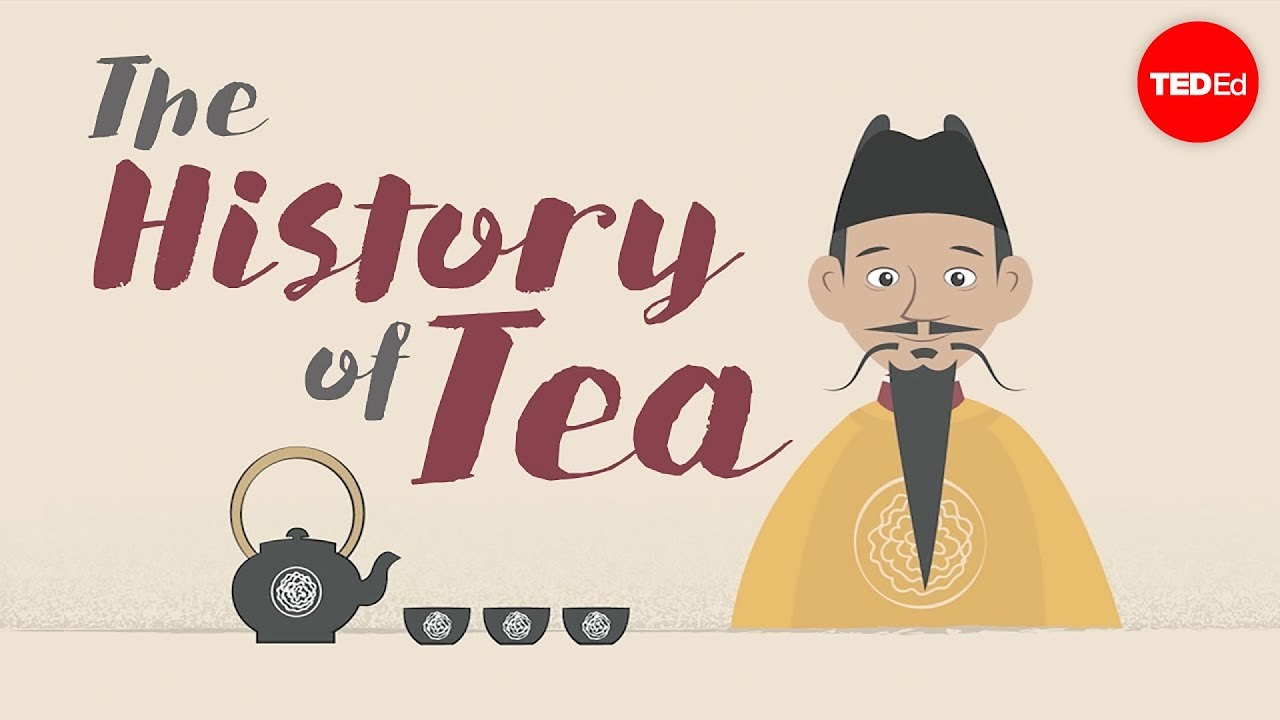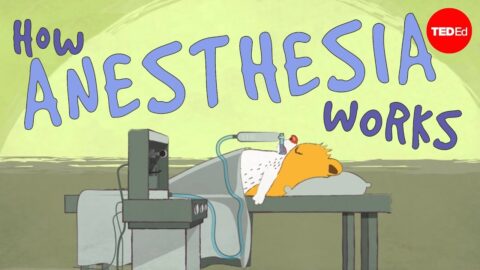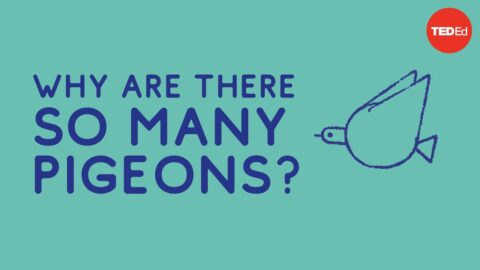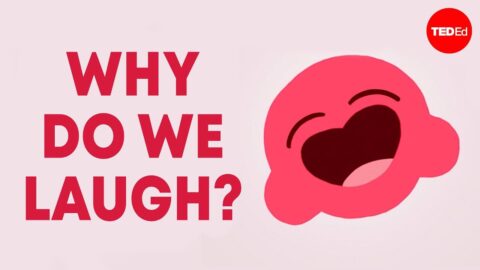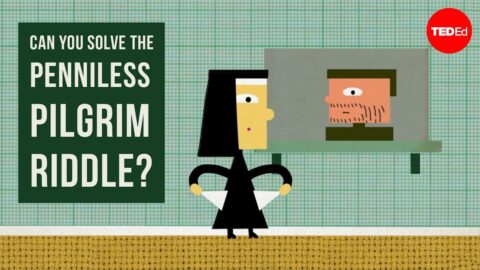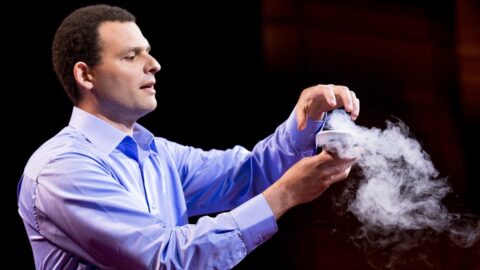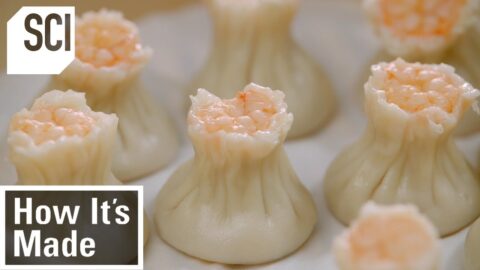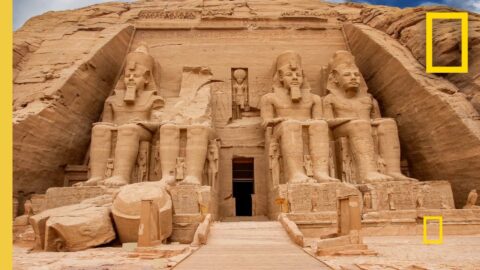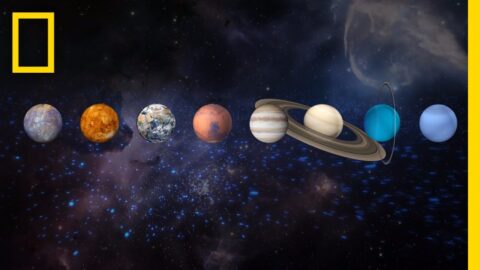During a long day spent roaming the forest in search of edible grains and herbs,
Durante um longo dia vagando pela floresta em busca de grãos e ervas comestíveis,
the weary divine farmer Shennong accidentally poisoned himself 72 times.
o cansado fazendeiro divino Shennong acidentalmente se envenenou 72 vezes.
But before the poisons could end his life,
Mas antes que os venenos pudessem acabar com sua vida,
a leaf drifted into his mouth.
uma folha caiu em sua boca.
He chewed on it and it revived him,
Ele mastigou e isso o reanimou,
and that is how we discovered tea.
e foi assim que descobrimos o chá.
Or so an ancient legend goes at least.
Ou pelo menos é o que diz uma antiga lenda.
Tea doesn't actually cure poisonings,
O chá não cura realmente envenenamentos,
but the story of Shennong,
mas a história de Shennong,
the mythical Chinese inventor of agriculture,
o mítico inventor chinês da agricultura,
highlights tea's importance to ancient China.
destaca a importância do chá para a China antiga.
Archaeological evidence suggests tea was first cultivated there
Evidências arqueológicas sugerem que o chá foi cultivado pela primeira vez lá
as early as 6,000 years ago,
já há 6.000 anos,
or 1,500 years before the pharaohs built the Great Pyramids of Giza.
ou 1.500 anos antes dos faraós construírem as Grandes Pirâmides de Gizé.
That original Chinese tea plant
Aquela planta de chá chinesa original
is the same type that's grown around the world today,
é o mesmo tipo que é cultivado em todo o mundo hoje,
yet it was originally consumed very differently.
mas originalmente era consumido de forma muito diferente.
It was eaten as a vegetable or cooked with grain porridge.
Era comido como um vegetal ou cozido com mingau de grãos.
Tea only shifted from food to drink 1,500 years ago
O chá só deixou de ser alimento para se tornar bebida há 1.500 anos
when people realized that a combination of heat and moisture
quando as pessoas perceberam que uma combinação de calor e humidade
could create a complex and varied taste out of the leafy green.
poderia criar um sabor complexo e variado a partir das folhas verdes.
After hundreds of years of variations to the preparation method,
Após centenas de anos de variações no método de preparação,
the standard became to heat tea,
o padrão passou a ser esquentar o chá,
pack it into portable cakes,
embale-o em bolos portáteis,
grind it into powder,
moer até virar pó,
mix with hot water,
misture com água quente,
and create a beverage called muo cha, or matcha.
e criar uma bebida chamada muo cha, ou matcha.
Matcha became so popular that a distinct Chinese tea culture emerged.
O matcha se tornou tão popular que surgiu uma distinta cultura do chá chinês.
Tea was the subject of books and poetry,
O chá era tema de livros e poesias,
the favorite drink of emperors,
a bebida preferida dos imperadores,
and a medium for artists.
e um meio para artistas.
They would draw extravagant pictures in the foam of the tea,
Eles desenhariam imagens extravagantes na espuma do chá,
very much like the espresso art you might see in coffee shops today.
muito parecido com a arte do expresso que você pode ver em cafeterias hoje em dia.
In the 9th century during the Tang Dynasty,
No século IX, durante a Dinastia Tang,
a Japanese monk brought the first tea plant to Japan.
um monge japonês trouxe a primeira planta de chá para o Japão.
The Japanese eventually developed their own unique rituals around tea,
Os japoneses acabaram desenvolvendo seus próprios rituais únicos em torno do chá,
leading to the creation of the Japanese tea ceremony.
levando à criação da cerimônia do chá japonesa.
And in the 14th century during the Ming Dynasty,
E no século XIV, durante a Dinastia Ming,
the Chinese emperor shifted the standard
o imperador chinês mudou o padrão
from tea pressed into cakes to loose leaf tea.
desde chá prensado em bolos até chá de folhas soltas.
At that point, China still held a virtual monopoly on the world's tea trees,
Naquela altura, a China ainda detinha um monopólio virtual sobre as árvores de chá do mundo,
making tea one of three essential Chinese export goods,
tornando o chá um dos três produtos essenciais de exportação chineses,
along with porcelain and silk.
juntamente com porcelana e seda.
This gave China a great deal of power and economic influence
Isto deu à China muito poder e influência económica
as tea drinking spread around the world.
à medida que o consumo de chá se espalhava pelo mundo.
That spread began in earnest around the early 1600s
Essa disseminação começou a sério por volta do início de 1600
when Dutch traders brought tea to Europe in large quantities.
quando comerciantes holandeses trouxeram chá para a Europa em grandes quantidades.
Many credit Queen Catherine of Braganza, a Portuguese noble woman,
Muitos atribuem à rainha Catarina de Bragança, uma nobre portuguesa,
for making tea popular with the English aristocracy
para tornar o chá popular entre a aristocracia inglesa
when she married King Charles II in 1661.
quando ela se casou com o rei Carlos II em 1661.
At the time, Great Britain was in the midst of expanding its colonial influence
Na época, a Grã-Bretanha estava em meio à expansão de sua influência colonial
and becoming the new dominant world power.
e se tornando a nova potência mundial dominante.
And as Great Britain grew, interest in tea spread around the world.
E à medida que a Grã-Bretanha crescia, o interesse pelo chá se espalhava pelo mundo.
By 1700, tea in Europe sold for ten times the price of coffee
Em 1700, o chá na Europa era vendido por dez vezes o preço do café
and the plant was still only grown in China.
e a planta ainda era cultivada apenas na China.
The tea trade was so lucrative
O comércio do chá era tão lucrativo
that the world's fastest sailboat, the clipper ship,
que o veleiro mais rápido do mundo, o navio clipper,
was born out of intense competition between Western trading companies.
nasceu da intensa competição entre empresas comerciais ocidentais.
All were racing to bring their tea back to Europe first
Todos estavam correndo para trazer seu chá de volta para a Europa primeiro
to maximize their profits.
para maximizar seus lucros.
At first, Britain paid for all this Chinese tea with silver.
No início, a Grã-Bretanha pagou por todo esse chá chinês com prata.
When that proved too expensive,
Quando isso se mostrou muito caro,
they suggested trading tea for another substance, opium.
eles sugeriram trocar o chá por outra substância, o ópio.
This triggered a public health problem within China
Isto desencadeou um problema de saúde pública na China
as people became addicted to the drug.
à medida que as pessoas se tornavam viciadas na droga.
Then in 1839, a Chinese official ordered his men
Então, em 1839, um oficial chinês ordenou aos seus homens
to destroy massive British shipments of opium
para destruir enormes carregamentos britânicos de ópio
as a statement against Britain's influence over China.
como uma declaração contra a influência da Grã-Bretanha sobre a China.
This act triggered the First Opium War between the two nations.
Este ato desencadeou a Primeira Guerra do Ópio entre as duas nações.
Fighting raged up and down the Chinese coast until 1842
Os combates ocorreram ao longo da costa chinesa até 1842
when the defeated Qing Dynasty ceded the port of Hong Kong to the British
quando a derrotada Dinastia Qing cedeu o porto de Hong Kong aos britânicos
and resumed trading on unfavorable terms.
e retomou a negociação em condições desfavoráveis.
The war weakened China's global standing for over a century.
A guerra enfraqueceu a posição global da China por mais de um século.
The British East India company also wanted to be able to grow tea themselves
A Companhia Britânica das Índias Orientais também queria poder cultivar chá por conta própria
and further control the market.
e controlar ainda mais o mercado.
So they commissioned botanist Robert Fortune
Então eles contrataram o botânico Robert Fortune
to steal tea from China in a covert operation.
para roubar chá da China em uma operação secreta.
He disguised himself and took a perilous journey
Ele se disfarçou e fez uma viagem perigosa
through China's mountainous tea regions,
através das regiões montanhosas de chá da China,
eventually smuggling tea trees and experienced tea workers
eventualmente contrabandeando árvores de chá e trabalhadores experientes do chá
into Darjeeling, India.
para Darjeeling, Índia.
From there, the plant spread further still,
A partir daí, a planta se espalhou ainda mais,
helping drive tea's rapid growth as an everyday commodity.
ajudando a impulsionar o rápido crescimento do chá como uma mercadoria cotidiana.
Today, tea is the second most consumed beverage in the world after water,
Hoje, o chá é a segunda bebida mais consumida no mundo, depois da água,
and from sugary Turkish Rize tea,
e do chá turco Rize açucarado,
to salty Tibetan butter tea,
para chá de manteiga tibetana salgada,
there are almost as many ways of preparing the beverage
há quase tantas maneiras de preparar a bebida
as there are cultures on the globe.
assim como existem culturas no globo.
Legenda Anterior
Pronunciar Palavra
Traduzir Frase Atual
Pausar / Play
Aumentar Fonte Legenda
Próxima Legenda
Pronunciar Frase
Dois Cliques para Salvar Palavra
Desativar Legenda / Ativar Legenda
Diminuir Fonte Legenda

